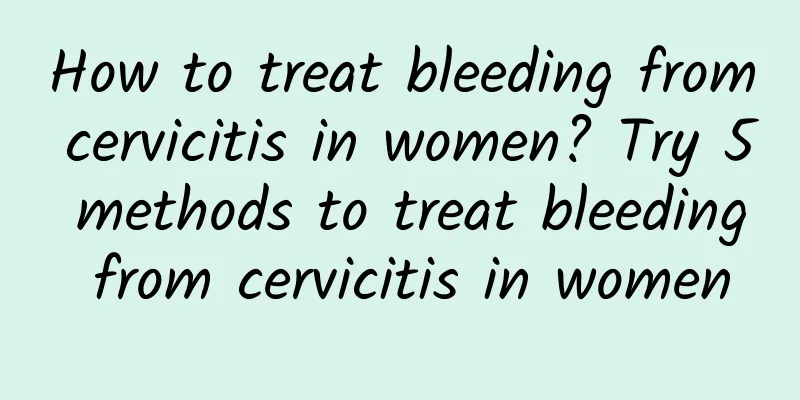What are the dietary taboos for people with bacterial vaginosis?

|
The vagina is the most sensitive part of a woman, and its environment is also relatively special. If it is not properly cared for, it is particularly easy to cause gynecological diseases. Bacterial vaginosis is a very common one. Moreover, regular care is required after the disease is cured, otherwise it will recur and cause serious troubles to the patient's daily life. Patients should understand some common sense in diet. 1. Avoid seafood: Fishy foods, such as mandarin fish, yellow croaker, hairtail, black fish, shrimp, crab and other aquatic products can promote damp heat, which can aggravate vulvar itching after eating and is not conducive to the disappearance of inflammation, so they should be avoided. 2. Pay attention to dietary nutrition: eat more fresh vegetables and fruits to keep bowel movements smooth; drink more water to prevent urinary tract infection. 3. Tobacco and alcohol: Smoking can aggravate the disease because the nicotine in tobacco can weaken the binding force between arterial blood and oxygen, and alcohol can promote dampness and heat, so it should be avoided. Similarly, foods containing alcohol, such as fermented rice wine and medicinal wine, should not be consumed. 4. Avoid spicy food: Eating too much spicy food (chili pepper, ginger, onion, garlic, etc.) can easily cause dryness and heat, which can cause heat and toxins to accumulate in the internal organs, resulting in symptoms such as swollen and painful gums, mouth sores, short and red urine, burning sensation in the anus, itching and pain in the front and back of the vulva, thus aggravating the symptoms of this disease. 5. Avoid sweet and greasy food: greasy food such as lard, fatty pork, cream, butter, mutton fat, etc., high-sugar food such as chocolate, candy, desserts, cream cakes, etc. These foods help to increase moisture and heat, which will increase the secretion of leucorrhea and affect the treatment effect. For gynecological diseases such as bacterial vaginosis, everyone must control their diet. In addition, they must pay attention to their personal hygiene in daily life. When cleaning the vagina, do not use cleansers frequently. After sexual intercourse, pay attention to body cleaning to prevent bacteria from growing. |
<<: What foods should not be eaten when suffering from bacterial vaginosis
>>: How to eat well when you have bacterial vaginosis
Recommend
Can I still get pregnant with uterine fibroids?
Women with uterine fibroids can still become preg...
Is irregular menstruation a manifestation of uterine fibroids? Can uterine fibroids cause uterine bleeding?
At present, the incidence of uterine fibroids is ...
Analyze the symptoms of adnexitis for you
Many women suffer from adnexitis due to various f...
Is pelvic inflammatory disease serious?
Is pelvic inflammatory disease serious? I believe...
What are the sequelae of abortion? Is it better to have a painful abortion or a painless abortion?
What are the side effects of abortion? Is it bett...
What to eat to improve uterine fibroids? Foods to improve uterine fibroids
What to eat to improve uterine fibroids? Foods to...
How to Differentiate and Diagnose Pelvic Peritonitis
When there is a serious infection in the pelvic o...
How to determine vulvar leukoplakia
To determine whether you have vulvar leukoplakia,...
How long does it usually take for abdominal pain to occur during an ectopic pregnancy? You need to analyze it based on your own situation.
The specific location of the ectopic pregnancy is...
Will eating hawthorn cause miscarriage? Don’t eat too much
Many women like to eat sour foods during pregnanc...
Can cervical erosion cause pelvic effusion? What is the relationship between the two?
Pelvic effusion is a phenomenon that many women n...
Introduce some issues about cervical precancerous lesions
What exactly are cervical precancerous lesions? C...
Endometrial thickness 18mm pregnancy
Endometrial thickness 18mm pregnancy 1. The clini...
Get rid of edema and lose weight! Oriental Billy's private lymphatic exercise
"Oriental Billy", a popular artist in S...
How to treat female cervical erosion? Three major treatments are recommended for female cervical erosion
Cervical erosion is a common uterine disease in w...









